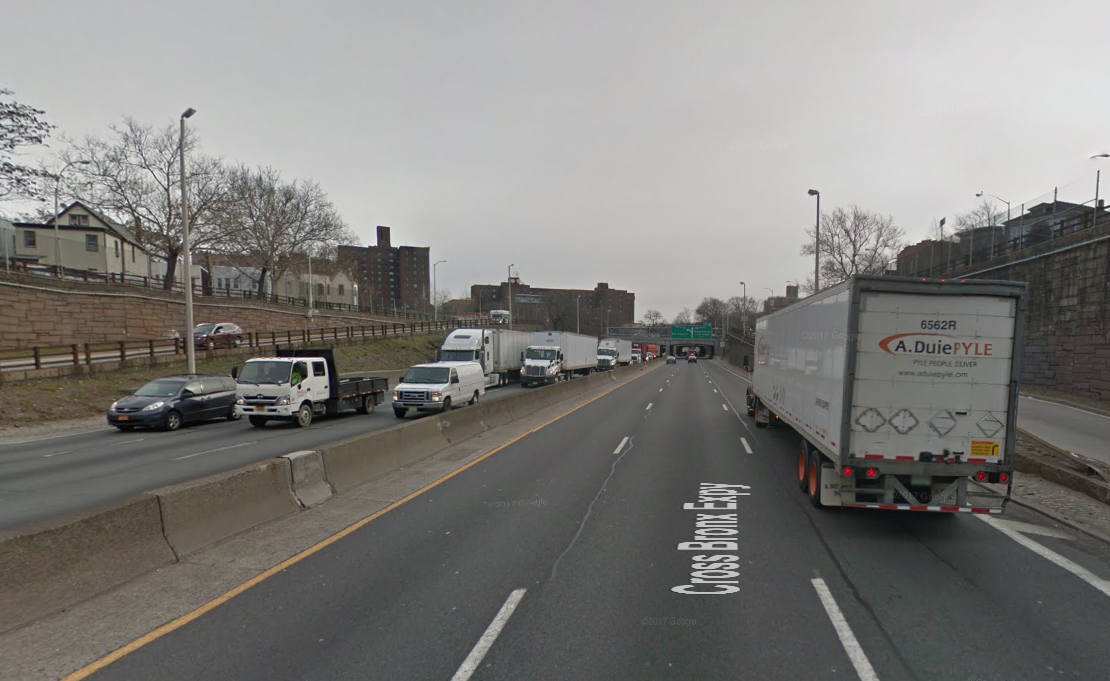Capping the sunken sections of the Cross-Bronx Expressway with new parkland would save lives and money, according to a paper from researchers at Columbia University published in the American Journal of Public Health.
The Cross-Bronx is an east-west gash across the borough, dividing neighborhoods and saturating streets with traffic and pollution.
Researchers evaluated the cost-effectiveness of capping the 2.4 miles of below-grade sections of the highway with public space. They found that building a park over the sunken Cross-Bronx Expressway segments would increase access to public space and physical activity, decrease noise pollution, and improve cardiovascular and mental health. In their model, those benefits would outweigh the expense of building the deck parks.
Capping a highway costs less when it's already below surface grade. Using construction cost figures from similar projects, the Columbia researchers estimated that building deck parks over 2.4 miles of the Cross-Bronx would cost about $750 million.
The benefits, meanwhile, would accrue financially, mainly in the form of higher property values, and to public health, mainly via increased physical activity and cardiovascular fitness thanks to improved park access. New housing construction and subsidies could maintain affordability for residents to offset rising property values, the researchers said.
“You would be solving a lot of problems with one investment," author Peter Muennig told Streetsblog. "It’s not just saving lives, it’s also saving money."
Investments that save both money and lives are rare in public health, the researchers note, and are usually limited to preventive measures like vaccines.
In light of the cost-effectiveness of decking the sunken parts of the Cross-Bronx, Muennig said it's possible that net benefits could be derived from other deck park projects, including ones that require some form of excavating, like Boston's Big Dig.
“You can put a lot more into an infrastructure investment than you might otherwise anticipate because these health returns are large enough to offset the cost of the investment," he said. "It’s definitely worth looking at other projects to see where you find some value."






